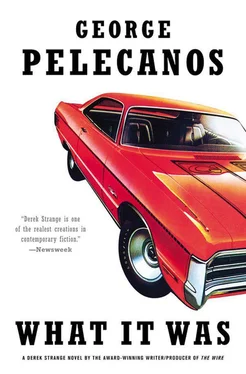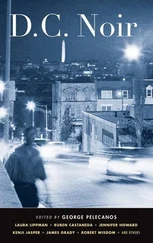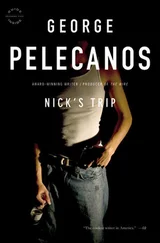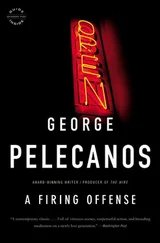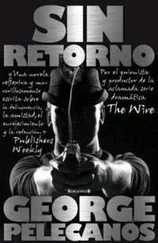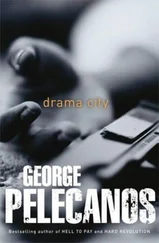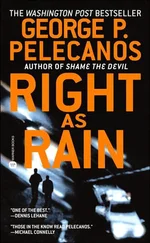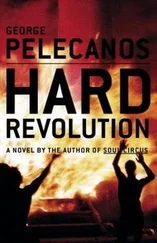George Pelecanos - What It Was
Здесь есть возможность читать онлайн «George Pelecanos - What It Was» весь текст электронной книги совершенно бесплатно (целиком полную версию без сокращений). В некоторых случаях можно слушать аудио, скачать через торрент в формате fb2 и присутствует краткое содержание. Жанр: Криминальный детектив, на английском языке. Описание произведения, (предисловие) а так же отзывы посетителей доступны на портале библиотеки ЛибКат.
- Название:What It Was
- Автор:
- Жанр:
- Год:неизвестен
- ISBN:нет данных
- Рейтинг книги:5 / 5. Голосов: 1
-
Избранное:Добавить в избранное
- Отзывы:
-
Ваша оценка:
- 100
- 1
- 2
- 3
- 4
- 5
What It Was: краткое содержание, описание и аннотация
Предлагаем к чтению аннотацию, описание, краткое содержание или предисловие (зависит от того, что написал сам автор книги «What It Was»). Если вы не нашли необходимую информацию о книге — напишите в комментариях, мы постараемся отыскать её.
What It Was — читать онлайн бесплатно полную книгу (весь текст) целиком
Ниже представлен текст книги, разбитый по страницам. Система сохранения места последней прочитанной страницы, позволяет с удобством читать онлайн бесплатно книгу «What It Was», без необходимости каждый раз заново искать на чём Вы остановились. Поставьте закладку, и сможете в любой момент перейти на страницу, на которой закончили чтение.
Интервал:
Закладка:
Linda’s fingers traced the fading shoulder tattoo Vaughn had gotten one drunken night in the Pacific, twenty-seven years ago. “Olga,” written across a flowing banner, scripted on a deep-red heart.
“What’re you working on these days, Frank?”
Vaughn said, “A case.”
FOUR
Coco Watkins’s place of business was located on 14th, Northwest, between R and S, on the second floor of an old row house. On the ground floor was a neighborhood market, once a DGS store owned and operated by a Jew, now run by an ambitious Puerto Rican. Fourteenth, from U Street north to Park Road, had gone up in flames the night of Dr. King’s assassination, and though the major fires had not burned this far south, the event had made the once-grand street a near commercial dead zone. But not every enterprise had been negatively affected. There was still a steady nightly stream of customers, married suburbanites and white teenage boys looking to lose their virginity, who kept one part of the local economy alive.
Coco was a madam, technically, but the title meant nothing more than manager for a multi-bed operation housing six small, cut-up rooms, each of which held a bare mattress, a particleboard dresser, a freestanding rack with wire hangers, and a low-watt lamp. The girls made their connections out on the street, leaning into the open windows of idling cars, and handed over the prepaid fee, thirty for the act, five for the room, to Coco before entering with their johns.
There was no pimp involved in this particular operation. It was fairly unusual for a woman to have such unchallenged control over a stable, but it was known that Robert Lee Jones was Coco’s man, and Red’s hard rep was such that she stayed protected. Even when Jones was incarcerated, few had tried to mack on Coco’s woheimen.
Coco and Jones sat in her office, which fronted 14th. A nice big room with a bar, a king-size, brass-headboard bed, red velvet couch and chairs, desk, compact stereo, and a couple of windows giving to a view of the wide street below. Coco was lounging on the couch in a negligee, her hair high and elegant, a live Viceroy in hand, the cluster-stone ring on her finger. Jones was in a chair, using an oiled cloth to polish one of two.45s he owned, classic Colts with stainless slides and black checkered grips. He had broken the.22 on a guardrail near the Anacostia and thrown its pieces into the river.
“Where you about to go with that heater?” said Coco.
“Me and Fonzo got business.”
“Contract?”
“Freelance.”
“Be mindful. The Odum thing’s still warm.”
“They got nothin.”
“What I been hearin, that Detective Vaughn caught the case.”
“The one they call Hound Dog.”
“Him. Girl I know name Gina Marie told me he been askin around.”
“Least they put a man on it.”
Coco dragged on her cigarette. “That dude got no quit.”
“Do I look like I care?”
After coming to the city from West Virginia at an early age, Jones had grown up in one of D.C.’s infamous alley dwellings, way below the poverty line. No father in his life, ever, with hustlers in and out the spot, taking the place of one. A mother who worked domestic when she could. Half brothers and sisters he barely knew or kept track of. Twenty-five dollars a month rent, and his mother could rarely come up with it. All of them hungry, all the time. Being poor in that extreme way, Jones felt that nothing after could cut too deep. Take what you want, take no man’s shit. No police can intimidate you, no sentence will enslave you, no cell can contain your mind.
Jones stood, holstered the.45 in the dip of his bells, dropped the tail of his shirt over the bulge. His chest looked flat under clothing, but he was just shy of concrete. Five hundred push-ups a day in lockup, the same regimen on the outside. Legend was, an ambitious young dude had tried to shank him in jail and the blade had broken off in Red’s chest. It wasn’t a legend. Homemade shiv, but still.
“My Fury’s in the alley,” said Coco.
“We taking Fonzo’s short,” said Jones. He bent down, kissed her full red mouth. His fingers grazed the inside of her bare thigh, and she got damp.
“Will I see you tonight?”
“Bet,” said Jones.
He left the room and walked down the hall, where a young working woman, a big mark above her lip, stood outside a Cooda›“Bet, room in a sheer slip, huffing a smoke.
“Red,” she said.
“Girl.”
Out on 14th, Alfonzo Jefferson pulled up in his ’68 Electra, a gold-over-black convertible with 360 horses, a Turbo-400 trans, wide whitewalls, and rear-wheel skirts. It was a big, pretty beast, one of the nicest deuce-and-a-quarters on the street. Jones slid into the passenger side and settled on the bench. Jones and Jefferson had first met in the D.C. Jail and, when they could, had worked together since. Jones liked Jefferson’s fierce nature, and his style.
Jefferson, small and spidery, looked like a man-child under the wheel. He wore a button-down synthetic shirt, slacks with a wide stripe, and a neat brimmed cap pulled low over his bony face. He had two-tone stacks on his feet. His front teeth were capped in gold. His voice was husky, and he was quick. Johnnie Taylor’s “Jody’s Got Your Girl and Gone” was playing through an eight-track deck in the car.
“What it is, Red?”
“What it will be.”
They gave each other skin.
“Got some blondes behind your seat,” said Jefferson. “Opener’s in the glove box.”
Jones retrieved a couple Miller High Lifes, golden in clear glass bottles, and popped their caps. He handed one to Jefferson. Jefferson took a long swig, fitted the bottle between his legs, and pulled off the curb.
Roland Williams lived on T Street, between 13th and 14th, in a house he rented, paying cash, always on time, no references required, no questions asked. The owner of the house was one of several slumlords who had bought run-down properties, pre-and post-riot, and methodically flipped them at an enormous profit to the U.S. government for their “urban renewal” projects. In the late ’60s, the practice had been exposed in a series of Washington Post articles that had made a splash in the newspaper industry and on Capitol Hill. Reporters won prizes and promotions, but their work had little impact down here; five years later and the area continued to be in the grip of poverty and opportunists.
Williams’s row house, on the outside, was as blighted as any other on the block, but inside it was well furnished and nicely appointed. Williams had money. He was the neighborhood heroin dealer, known to most as such, and went untouched and unmolested by the law. Williams paid protection money to Mike Hancock, a Popeye who worked the Third District.
Williams was of the older school of heroin dealer who worked peacefully out of his house. He copped ounces, called “jumbos,” at 116th and 8th, up in Harlem. He bought from minor leaguers, black dudes who had scored from Italian button men who were low on the food chain themselves and connected to the Family. The run to Little Baltimore was Williams’s pleasure; he liked to go “up top” to the big city, do his thing, eat in one of those nice checkerboard-tablecloth restaurants they had, take his time, drive home slow.
Williams used mannite and quinine to cut his heroin, which generally was 4 to 12 percent Cto they had, pure when it hit the end user. Four was garbage, 12 a smoker. The temptation was to keep stepping on the dope to maximize profit, but if it was diluted too much a dealer would soon be out of business with a rep for selling trash product. Williams was not greedy, and he was known for delivering an honest kick.
He was a heroin user, but he had that under control. Like many in his line of work, he was functional. He laughed when he saw the TV shows with bad actors in dark-eye-circle makeup, playing strung-out junkies who had fucked up their lives. In Williams’s circle, it was macho to be an addict and know how to carry it.
Читать дальшеИнтервал:
Закладка:
Похожие книги на «What It Was»
Представляем Вашему вниманию похожие книги на «What It Was» списком для выбора. Мы отобрали схожую по названию и смыслу литературу в надежде предоставить читателям больше вариантов отыскать новые, интересные, ещё непрочитанные произведения.
Обсуждение, отзывы о книге «What It Was» и просто собственные мнения читателей. Оставьте ваши комментарии, напишите, что Вы думаете о произведении, его смысле или главных героях. Укажите что конкретно понравилось, а что нет, и почему Вы так считаете.
